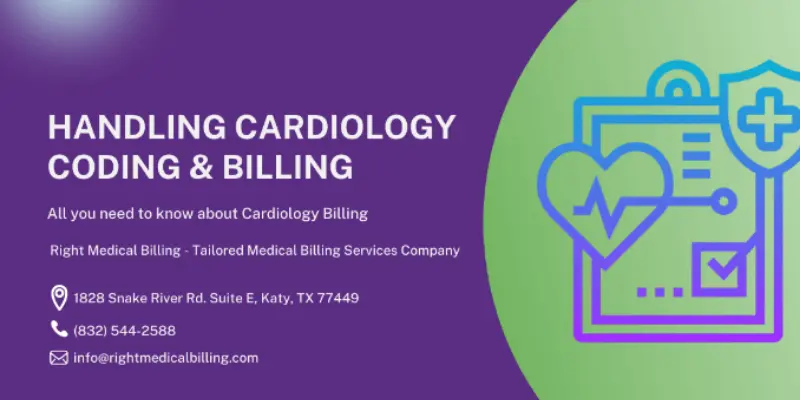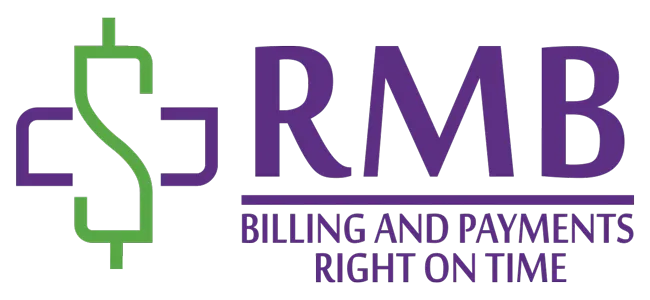Cardiology Billing and Coding Guidelines
Cardiology billing and coding is complicated by many procedural guidelines, significant contractual changes, and often changing codes. CPT code assignment may be difficult, mainly when variables are utilized, and keeping up with different codes, code modifications, and deleted codes requires a significant commitment.
The necessity of paperwork, accountability, billing, coding and monitoring in cardiology has grown more than ever since ICD-10. Cardiovascular coding can be complicated due to the necessity for structural clarity in documentation and coding, the frequency of various comorbidities, and technological advancements. Many cardiac health providers and organizations frequently report multiple denials owing to billing and coding problems in cardiology.
Cardiology billing has its own set of issues. Human mistakes, a lack of awareness about current medical coding and documentation requirements, functioning and graphing across numerous care settings, and avoiding cardiac coding to the entire degree of precision are among the problems. As a result of the ongoing changes, many problems, and time-consuming approaches, medical billers and coders must become informed about cardiology billing and coding guidelines.
4 Tips for Accurate Cardiology Coding

1. Reduce the Possibility of Human Error
We all commit errors, and when dealing with up to 7 digits and characters per code, it is simple to input them inaccurately, mainly when dealing with many codes with complicated clients and processes. If you outsource medical billing or manage it in-house, double-checking codes is essential.
As you become more familiar with ICD-10 and CPT codes, you will begin to recall commonly used ones and will be able to input them more rapidly into your systems. That opens the door to common medical billing errors and possible loss of precision, both of which can impact reimbursements.
2. Keep Up to Date on Cardiology Coding
Keep the most updated ICD-10 CM and PCS, CPT, and HCPCS code sheets in the office at all times. CMS and several coding institutes release revisions and rules regularly. For updates, visit the CMS website and sign up for any documents supplied by CMS, the OIG and federal and municipal authorities that govern billing practices. Search for codes in both the alphabetical and tabular indices.
3. Avoid Excessive Symptom Coding
Don’t enable the concentration on linked diagnoses to cause you to disclose problems you shouldn’t. Don’t give extra codes for signs/symptoms that are generally linked with an illness (unless a code-specific command specifies otherwise). You may describe signs and symptoms that are not often connected with the illness process.
It is essential to prevent unnecessary reporting symptoms. For example, if a patient has a verified diagnosis, it should be reported rather than a symptoms code. It would help if you did not utilize extra codes for symptoms commonly linked with a condition unless there are specific guidelines to the contrary. According to ICD-10 official rules, symptoms that aren’t generally connected with an illness can be recorded.
4. Audit Cardiology Coding Regularly
Regularly auditing your healthcare practice will assist you in identifying inconsistencies in your cardiology billing services value chain. It enables you to identify communication barriers among physicians, pharmacists, billers, and coders. Retaining current knowledge, correctly documenting, and employing appropriate coding standards will result in an enhanced return on investment, regular audits, and overall enhanced compliance.
Different individuals are engaged in creating an accurate image of the patient’s overall treatment and degree of understanding, as is the case in all healthcare fields. Audit reports regularly will guarantee proper reimbursement and verification.
Any faults in healthcare practices and methods might result in refused claims and postponed reimbursements. As a result, frequent audits enable you to optimize your healthcare practice to deliver the best possible treatment to your patients.
Because errors can be expensive, many cardiology practices are increasingly outsourcing their billing and coding to specialists with expertise and competence in this field. Outsourcing cardiology billing and coding enables us to focus on patient outcomes while increasing your practice’s revenue and income stream. We provide medical billing services across United States.
Final Words about Cardiovascular Coding
Right Medical Billing collaborates with cardiology and other specialties around the country to promote efficiency and optimize income through billing, coding, licensing, and certification. Contact us now to discover more about how our team may be the ideal match for your practice specialty billing.




